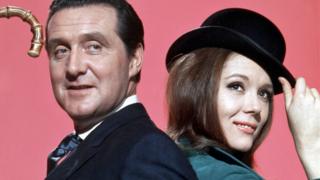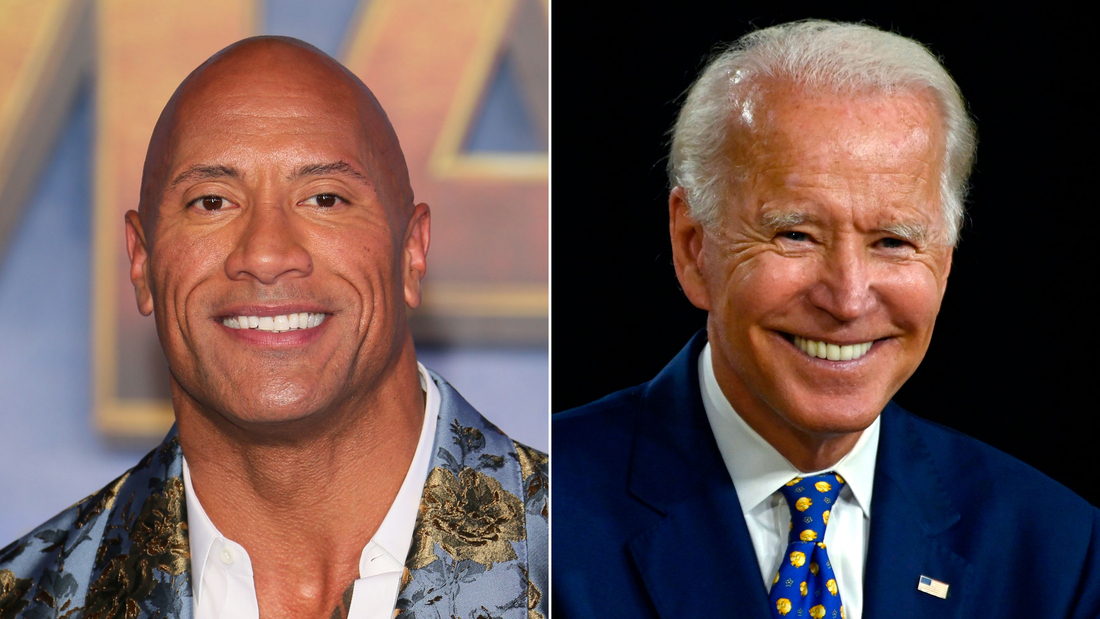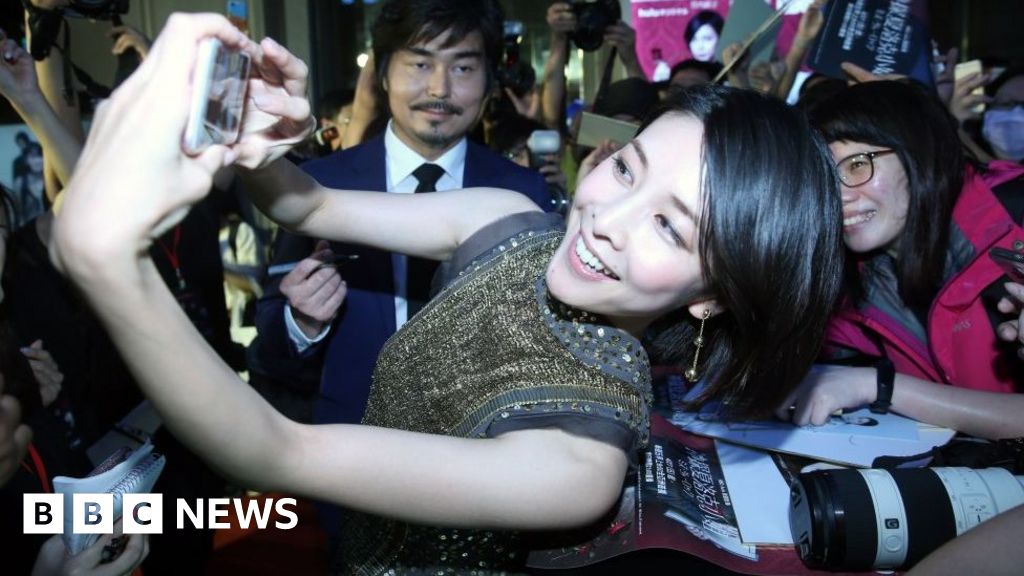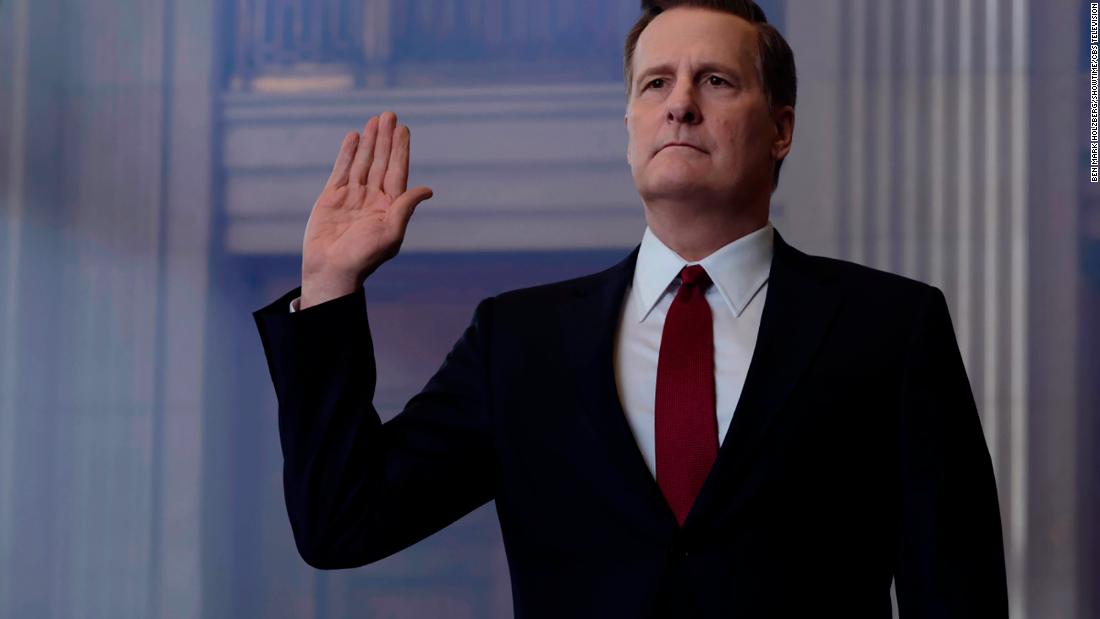 Image copyright
Getty Images
Image caption
Patrick Macnee and Diana Rigg formed a hugely popular partnership in The Avengers
Image copyright
Getty Images
Image caption
Patrick Macnee and Diana Rigg formed a hugely popular partnership in The Avengers
When actress Diana Rigg discovered she was earning less than a cameraman on 1960s TV show The Avengers, she was outraged. But she found little support in the industry, and hostility in the press.
As the sharp and suave investigator Mrs Emma Peel, Rigg helped make The Avengers a global TV hit.
She took over from Honor Blackman opposite Patrick Macnee's urbane secret agent John Steed, and the pair took the series to greater heights of popularity, particularly in the US.
Her leather catsuit may have made the deepest impression on some viewers, but it was Mrs Peel's self assurance, speed of thought, bravery and wit - not to mention action skills - that made her a good match for Steed, and the villains they encountered.
While she was positioned as a sidekick, Rigg was in many ways the equal of her co-star. But when it came to pay, she found she was not even on a par with the cameraman.
Image copyright Getty Images Image caption Rigg's Mrs Emma Steel was often in the driving seatIn 1991, she told The Times that after 12 episodes, she realised she was earning £90 per week, while a cameraman was getting £120.
"I made a bit of a stink about it," she said. "At the time, it was considered very bad form to suggest that you were not getting enough."
Her agent had not "equipped himself with enough knowledge to bargain properly for a decent price for me", she explained.
"No, I didn't stamp my foot. All I said was, 'Look, this is unfair,' and I got double, £180. It still wasn't a huge amount. Any argument about money is ugly, but at the same time I felt I was being exploited and I had to put a stop to it."
Speaking to the same paper 25 years later, she said: "If something is unjust you have to fight it." She had always had a sense of injustice, she said. Asked where that came from, the Doncaster-born actress replied: "Yorkshire."
Image copyright Getty Images Image caption Mrs Peel was one of the first women on TV who kicked assAt the age of 27, she got the raise and respect she felt she deserved. "Not only that, I'm happy to say - a touch of fear," she told Variety last year. But it did come at a cost to her reputation.
"When I complained publicly, the newspapers got hold of it," she told BBC News in 2019. "I was represented as a mercenary young woman stepping out of line and demanding money.
"I was lonely as well because no one supported me. I did get more money, but thereafter I was labelled as go-getting and 'hard' - and it was unfair because I wasn't."
She was "a lone voice in the wilderness" when discussing the gender pay gap at the time, she told BBC Newsnight last year. Perhaps the hostile press response explained why others were afraid to support her in public.
'I was trouble'
"There were no other women who stood out and came forward and said, 'Well done, you. How disgusting it is that you're getting so much less than the cameraman,'" Dame Diana told The Daily Express in 2018. "Nobody said a word."
There was no support either from her co-star. "Patrick was a dear and sweet but wanted a quiet life. And I was trouble," she told the Agence France Presse (AFP) last year.
Although her salary doubled, it presumably still did not match Macnee's. She told BBC HardTalk in 2016 that she never asked him what he earned. "I didn't want to put him in that situation. It was my fight, and I had to fight it by myself."
That was 54 years ago. While much has improved, in recent years women have faced battles over the gender pay gap in TV's The Crown, in the BBC, and in Hollywood.
Image copyright Reuters Image caption Dame Diana (left) with Macnee, her Avengers successor Linda Thorson and predecessor Honor Blackman (right) in 1993Dame Diana voiced her support for those still fighting for fair pay. "I think it is outrageous that actresses are still underpaid," she told AFP. "If they are of the same stature as the man they are playing opposite, then they should be paid the same."
Last year, the world's 10 best-paid male actors earned 87% more than their female counterparts, according to Forbes magazine.
"I don't join generally the main body of feminism," Dame Diana told Newsnight. "But I've always said that I thought equal pay gets you a long way to be treated equally by a man."
'Powerful and strong'
Rigg left The Avengers after two series to return to her first love, the theatre, with the Royal Shakespeare Company - despite it meaning a pay cut to £70 per week.
"Playing in The Avengers is a commercial thing," she was quoted as saying at the time. "Appearing in Shakespeare means more than money."
She was replaced on the TV show by Canadian actress Linda Thorson. Speaking on Thursday, Thorson paid tribute to her predecessor.
"She was powerful and strong," Thorson told BBC News. "I think that's what we need to learn, that actresses go through a lot of ups and downs, and she survived them all."

 5 years ago
893
5 years ago
893 

